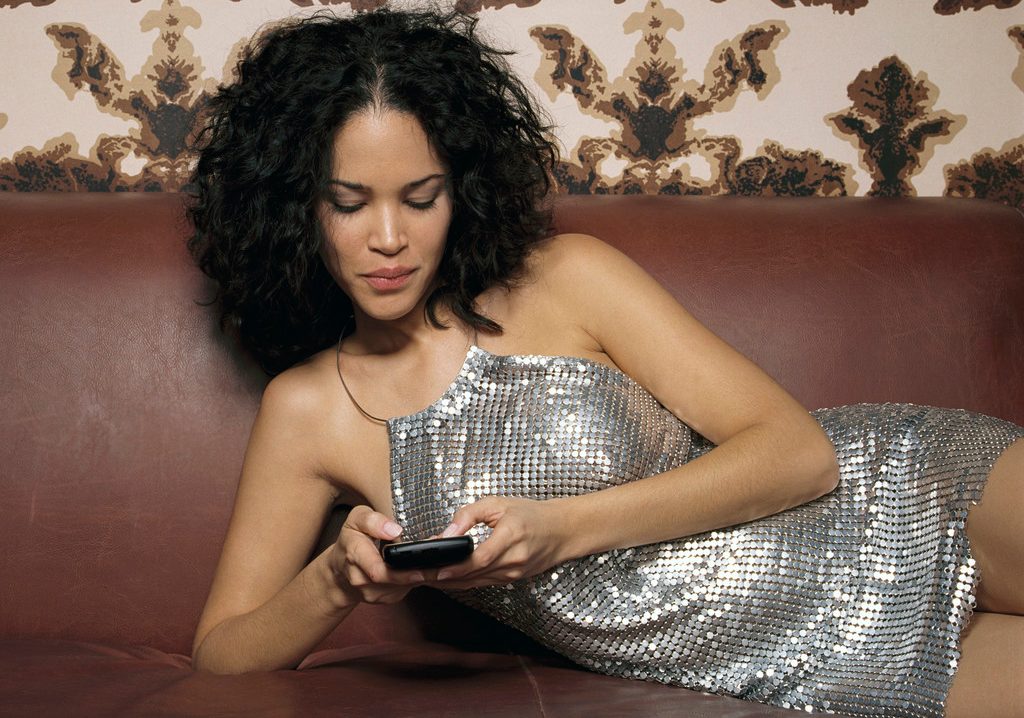Can Your Smartphone Analyze Your Mental Health?

Smartphones can monitor and track broad swaths of human activity. A new crop of apps is beginning to take advantage of this technology for mental health.
The newest mental health tool may be your smartphone.
Smartphones can monitor and track broad swaths of human activity, from the sound of your voice to your heartbeat to breathing patterns — without running down the battery. A new crop of apps is beginning to take advantage of this technology for mental health.
YOU MIGHT ALSO LIKE: Smartphone Distracted Parenting Is a Bad Habit
Researchers at Dalhousie University in Halifax, Canada, for example, launched an app in 2020 that users can download to keep tabs on their mental well-being. It tracks users’ voice recordings, keystrokes, and sleep patterns.
According to at least one business forecaster, the money spent on emotion-detecting technologies will surge from $21.6 billion in 2019 to $56 billion by 2024.
The crowded field of apps
A company called Healium says its technology allows users to “see their feelings.” Data collected by an Apple Watch feeds to an app that translates such data into images like butterflies.
The Inner Balance app, which measures heart rhythm patterns, has attracted attention with a significant body of research.
A digital wristband called Feel combines body data with cognitive behavioral therapy (CBT) exercises and prompts. It also offers weekly 15-minute sessions with licensed therapists.
One company, Ginger.io, has developed apps that monitor mood and physical health indicators for healthcare patients and can alert medical care providers if something is awry.
In a crowded field, it’s not yet clear which apps will be more effective. One early app, Moodies, launched in 2014, claims to be able to deduce emotional state from voice data. But in a study that tried out the technology on the soundtracks of 34 scenes from different films in four languages, researchers concluded that it can tell positive vs. negative emotion but can’t reliably distinguish between anger and sadness, or between fear and disgust,
In StudentLife, developed by researchers at Dartmouth, sensors in a smartphone, particularly its microphone, can deduce information about users’ activities. In a pilot, the data correlated with standard psychiatric measures of depression and stress[DE1] administered to the students — and even their grades.
What about your privacy?
Such detailed access to personal information has many privacy advocates concerned — and any use for healthcare will have to comply with strict federal health privacy laws in the United States.
Yet access to “lifelogging” data can have positive benefits.
In their paper describing StudentLife, the Dartmouth researchers noted that two students ran into academic difficulty during the term, missing classes and failing to turn in work. Because the professor running the study had access to the students’ sensing data, which presumably indicated emotional distress, he did not fail the students, while their professors for other classes did.
The choice allowed the students to return for the following term, when they would otherwise have been suspended. Such data-logging apps could give medical care providers incredible insight into those they are responsible for, leading to similarly sensitive, tailored responses.
The best available apps
For personal use, mood-monitoring apps are still cutting edge but are likely to begin multiplying. Here are a few current standouts.
- Moodfit is a free app that includes a gratitude journal, breathing exercises, sleep tracking, and prompts based on CBT.
- Worry Watch provides feedback on whether your worst worries come to pass. You record your fears and get reminders to note how things went, along with relevant statistics.
- MoodTools uses CBT to address depression and helps you track your mood over times.
- PTSD Coach was developed by the U.S. military for veterans to track and address their trauma-related symptoms.
- For iPhones, MoodKit also uses CBT techniques that you can practice in more than 200 activities.
- Daylio is a colorful, highly customizable, and fun micro-diary that offers action tips to avoid stresses or boost mood. The BellyBio app provides biofeedback for meditative breathing — just place the phone on your stomach while deep breathing to get a report.
- For iPhones, the app Coach.me doesn’t use monitoring but lets you choose physical and mental health goals to meet, such as losing weight or learning a new skill, then tracks your progress over time. The app allows you to interact with a community of others working toward the same goals or hire a professional coach.
- The SleepCycle app monitors and determines your sleep cycles. Just put the phone next to you while you sleep. Then, it wakes you when you’re sleeping lightly, at the optimal time for alertness.
Updated:
June 23, 2022
Reviewed By:
Janet O’Dell, RN